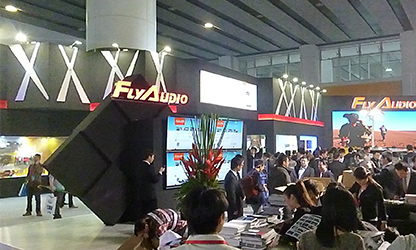Global Exhibitions Market Looks to Indonesia for Lucrative Growth Opportunities

Despite the global exhibitions market experiencing a slowdown in 2015, the Indonesian tradeshow market continues to accelerate, offering lucrative opportunities for international organizers and investors, as reported in Globex 2016: the global exhibition organizing market: assessment and forecast to 2020, produced annually by AMR International.
“For the first time we dedicated an entire chapter on the Indonesian exhibitions market
because it’s an underserved market that shows no signs of slowing,” said Diana Gineva, editor of Globex 2016.
Since 2011, Indonesia has grown at close to 13 person CAGR with further growth of 16 percent CAGR forecast to 2020.
This acceleration largely is driven by Indonesia’s growing middle class and infrastructure improvements, such as the expansion of exhibition venue space.
“The Indonesian market remains smaller than its actual potential, and was valued at $218M in 2015, with Jakarta hosting 90 percent of international events,” Gineva said. “Indonesia is an attractive destination that’s very much on the radar for international organizers.”
Indonesia - Key insights
· Launching or cloning new events is a possibility for international organizers, as the market is far from saturation. Joint ventures with local organizers or events tend to be the preferred growth strategies, as they give access to local expertise and connections, while relying on the international organizer’s resources.
· The more profitable B2B exhibitions market remains underserved. Although organizers are increasingly shifting their focus to B2B industries, B2C events remain the largest segment.
· While machinery and automotive are the largest sectors in terms of net square meters, sectors that appeal to the growing middle class, such as consumer products, posted the highest year-on-year growth in 2015.
· Exhibition venue space is expanding with the 2015 opening of Indonesia Convention Exhibition (ICE) having total capacity of 50,000 square meter indoor space.
Global Market Outlook – Key Insights
The global exhibitions market experienced a slowdown in 2015, expanding by only 1.7 percent compared to 4.2 percent in 2014 to reach $24.3 billion.
This was due to significant declines in Russia and Brazil, stagnation in Turkey and France, and a weak biennial year in Germany.
China overtook Germany as the second largest market after the U.S., which is an indicator of the permanent shift in market power in favor of China.
“Overall emerging markets and the Gulf region continue to drive growth, together with a recovery in mature markets driven by overall improved macroeconomic conditions,” Gineva said. "Whichever way you look at it, the exhibitions market still remains a highly attractive sector as events are highly profitable, plus they have excellent cash flow characteristics with stand space deposits often paid a year in advance. The exhibitions market also remains fragmented with considerable opportunities for consolidation.”
To find out more about Globex 2016 visit: amrinternational.com/globex2016


Add new comment